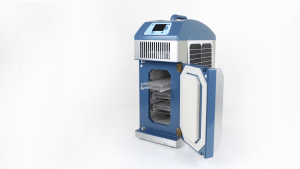
Agriculture
February 20, 2024
3rd Stone Design Stone Cold Solar
Read SolutionImplemented by
Stone Cold Systems

Updated on June 7, 2024
·Created on August 1, 2016
A health card that uses a scanner to store records in a digital database.
Target SDGs
SDG 3: Good Health and Well-Being
Market Suggested Retail Price
$3.50
Target Users (Target Impact Group)
Household
Distributors / Implementing Organizations
Shifo, PLAN International Uganda, Swedish Postcode Lottery, IKEA Foundation, IKARE Ltd
Countries
Afghanistan, Gambia, The, Uganda
Manufacturing/Building Method
The MyChild Card is printed at local printing companies in the countries using the system.Interview with representative
Intellectural Property Type
Select Type
User Provision Model
Contact Shifo to learn about how to implement the MyChild system.
Shifo provides implementation support for MyChild Card for five years after launch.Interview with representative Costs associated with equipment, adjusting the reporting of the system, and capacity building during the initial stages of implementation are entirely or partially donor-funded. Shifo has partnered with governments and strong local NGOs working on the ground in the countries using MyChild Card.Interview with representative
Distributions to Date Status
Real-time information on the number of children registered and followed up with using MyChild is available on the Shifo website.
Telecommunication service required
SMS, mobile internet or GPRS
Level of connection service needed
3G and above
Additional features required
None
Device(s) required
Computer, scanner, cloud server
Permanent network connectivity required (Y/N)
No, intermittent connectivity required at the health facility for registration and follow-up
Two way communication (Y/N)
No
Usage rate (%)
Unknown
Literacy support (Y/N)
Yes (IVR)
Languages available
English, Pashto, Dari
Operating system and version
Windows
Power requirements
Occasional power supply (max 2 hrs/day at health facility)
eHealth application
Education (patient) and behavior change, data analytics, electronic medical records
Design Specifications
The MyChild Card is a health card based on Smart Paper TechnologyTM that allows written information to be scanned and uploaded onto a secure server by health workers for digitation. The MyChild Card is kept with the parents or guardians and allows follow up on vaccination status, nutritional status, growth and development from birth to five years of age.
Each card possesses a unique identifier which is assigned to each newborn child. Experts note that although the child is referred to by a unique ID, there is still sensitive information (e.g HIV status) that is recorded and therefore the data needs to be well secured in order to avoid any possible re-identification risk of a child from anonymous information.The card consists of three sections: educational information for parents, registration forms for nurses to record preventative health service information (dates of vaccinations, weight, etc.), and slips that can be scanned in order to digitize the information. The slips are brought to scanning stations based at district hospitals and district health offices where slips are scanned thus updating the electronic health record for each child. Over 100 indicators are generated using the digitized information which can be sent to key regional and country stakeholders as a report via PDF, email, web, or existing health management information systems (e.g. DHIS2).
Because the product can be paper-based for certain settings, there is risk for it to be lost. This problem could potentially be addressed if those that periodically fetch the new cards to be scanned can return with a (password protected or encrypted) copy of the records to update the offline database in the clinic.
The electronic medical history enables parents/guardians to receive SMS reminders and individual follow-up on a child's vaccination schedule. Internet connectivity is required at the health facility for registration and follow-up. Storage and synchronisation of patient data and statistics is done with a cloud server that is provided to the health centers by Shifo.
Technical Support
A representative from Shifo is sent to regions new to MyChild to help facilitate implementation during the beginning months. Shifo provides implementation support for the first five years. Continuous local technical support is required to maintain the MyChild system. Training is provided for healthcare personnel to increase computer literacy.
In order to contact them write an email by using the bottom part of the mail website.
Replacement Components
The laptops and scanners for the system are purchased in the implementing country and can be replaced as needed.Interview with representative
Lifecycle
The MyChild Card can be used by a parent or guardian for their child from birth to five years of age. Canon scanners, which is the typical scanner brand that is used for the system, have a lifetime of 7-10 years.Interview with representative
Manufacturer Specified Performance Parameters
The manufacturer aims to increase the efficiency of birth registration and health service provision.
Vetted Performance Status
MyChild was found to increase the efficiency of registering children and providing health services at health centers by 119%. MyChild was also found to reduce the time spent on reporting and administration tasks at the health center level from 50-60% to 10% per day, which translates to the equivalent of one extra employee at each health facility.
Safety
N/A
Complementary Technical Systems
Vaccines, vaccine storage
Academic Research and References
Usman, H.R., et al., 2011, Randomized Controlled Trial to Improve Childhood Immunization Adherence in Rural Pakistan: Redesigned Immunization Card and Maternal Education, Trop Med Int Health, 16(3), pp. 334–342.
Chowdhury, M., Asim, S. and Sahlen, K. G., 2018, Questing the Mychild Solution in Afghanistan. An External Evaluation of Data Quality, Operational cost and Efficiency, Report, University of Umea, Sweden.
Sowe, A., Putilala, O. and Sahlen, K.G., 2018, Assessment of MyChild Solution in The Gambia: Data Quality, Administrative Time Efficiency, Operation Costs, and User’s Experiences and Perceptions, Report, University of Umea, Sweden.
“Shifo Foundation.” n.d. Shifo.Org. Accessed June 7, 2024. https://www.shifo.org/
“Plan International Uganda.” 2024. Plan International Uganda. January 9, 2024. https://plan-international.org/uganda/
“Swedish Postcode Lottery Supports Implementation of MyChild System in Busoga Region.” n.d. Mynewsdesk. Accessed June 7, 2024. https://www.mynewsdesk.com/se/shifo/news/swedish-postcode-lottery-supports-implementation-of-mychild-system-in-busoga-region-88231
“Homepage.” 2022. IKEA Foundation. December 20, 2022. https://ikeafoundation.org/
“Goal 3.” n.d. Sdgs.Un.Org. Accessed June 7, 2024. https://sdgs.un.org/goals/goal3
“Who We Are.” n.d. Shifo.Org. Accessed June 7, 2024. https://www.shifo.org/who-we-are
“Get in Touch.” n.d. Shifo.Org. Accessed June 7, 2024. https://www.shifo.org/get-in-touch
Compliance with regulations
MyChild Card adheres to API standards so that the product can be connected to different statistic systems. Shifo created a plug in to directly integrate MyChild Card with DHIS2.Interview with representative
Evaluation methods
Evaluation was carried out in two phases: field tests and proof of concept, to test for data quality, efficiency and operational cost. Both of them took place in Uganda.

Agriculture
February 20, 2024
Implemented by
Stone Cold Systems
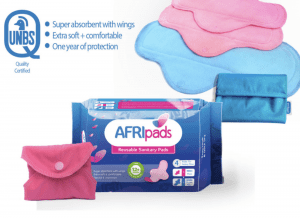
Agriculture
December 14, 2023
Implemented by
AFRIpads
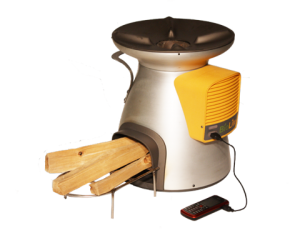
Agriculture
December 2, 2024
Implemented by
BioLite
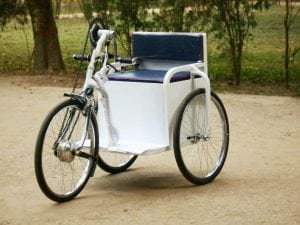
Agriculture
February 29, 2024
Implemented by
BRAC University
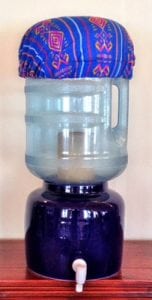
Agriculture
January 11, 2024
Implemented by
Caminos de Agua
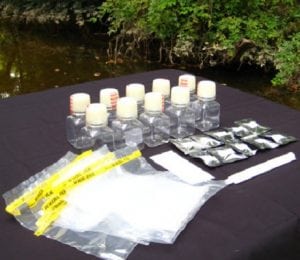
Agriculture
January 17, 2024
Implemented by
Aquagenx
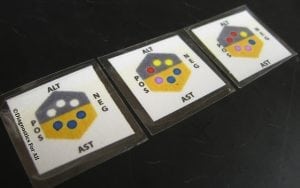
Agriculture
February 14, 2024
Implemented by
Diagnostics for all
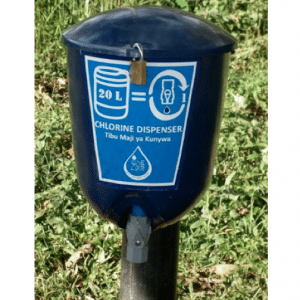
Agriculture
September 23, 2023
Implemented by
Innovations for Poverty Action
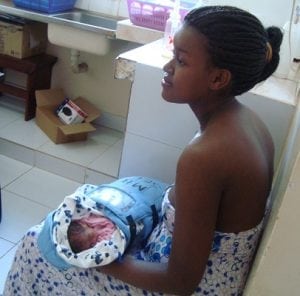
Agriculture
November 10, 2023
Implemented by
Embrace Innovations
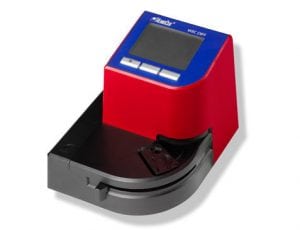
Agriculture
February 15, 2024
Implemented by
HemoCue
Have thoughts on how we can improve?
Give Us Feedback
Alex says:
At a high level, the MyChild Card answers an important high-level problem in an interesting way; there is no doubt that more timely and accurate information on infant (as well as adult) health provision would fundamentally imprve service provision. More effective birth registration is a fundamental issue for child and maternal welfare; MyChild Card addresses this from a technological and organisational perspective as well as from a data ownership perspective. As with all solutions there are some caveats that might make it less suitable in some contexts.
Alex says:
At a high level, the MyChild Card answers an important high-level problem in an interesting way; there is no doubt that more timely and accurate information on infant (as well as adult) health provision would fundamentally imprve service provision. More effective birth registration is a fundamental issue for child and maternal welfare; MyChild Card addresses this from a technological and organisational perspective as well as from a data ownership perspective. As with all solutions there are some caveats that might make it less suitable in some contexts.
There may be a slight discrepancy in information among a few different sections. It is unclear to me if power is needed or not for the product to work. If it doesn’t require power than how long can it maintain adequate performance without power? In other words, can the reported 72 hours be achieved with no power (assuming that the PCM packs were fully frozen before power was lost)? And even if the device is still capable of cooling the infant during the “power outage”, do the electronics and alarms still work? Specifically I’m referring to the sections “Power supply type” and “Manufacturer specified performance targets”.
As per Bob: Steam
– Pros & Cons: reliable source of power or electrical storage and/or backup
power is required to power the unit/heaters to reliably produce steam. This limits the application to where this type of power is available.